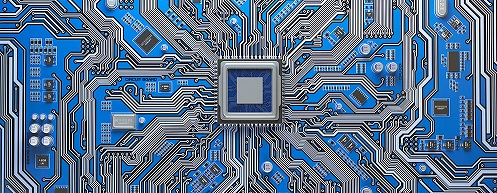TSMC: the biggest name you’ve never heard of?

When Morris Chang set up Taiwan Semiconductor Manufacturing Co (TSMC) back in 1987, it was only two years after Microsoft had started shipping copies of its Windows operating system around the world, and a year before the first internet worm (similar to a virus) would infect a modest 6,000 computers.
Chang, who is credited with transforming the chip-making industry, started the business when he was 56, an age when most of us are planning for retirement. Last month, during celebrations to mark TSMC’s 30th anniversary, the Stanford graduate and former Texas Instruments executive announced his decision to step down next June.
It’s the end of an era, a period of rapid change when pioneers like Chang helped shape today’s personal computer industry, and in the process, developed the processing power behind the smartphone revolution. So what lies ahead for TSMC as it contemplates a future without him, a man Forbes has picked as one of ‘The World’s 100 Greatest Living Business Minds’?
Chang will leave behind a company that’s in rude health. The world’s biggest foundry chipmaker is number one in contract chip production, with a 56% share of the global market – a market which, TSMC expects, will grow by 16% this year. The firm’s shares listed in Taipei and its American Depository Receipts are trading near record levels. The company projects revenues of as much as US$9.2 billion for the end-December quarter, amid pent-up demand for Apple’s latest smartphone (TSMC supplies computer chips for the iPhone X).
The firm has a crucial role in Apple’s supply chain. The iPhone-maker is its biggest customer for 16-nanometre (nm) technology. This technology is used in chips that power older iPhone 6 and iPhone 7 models. For this year’s iPhone 8, TSMC is supplying new 10-nm technology. One nanometre is one millionth of a millimetre. Miniaturisation means more transistors can be squeezed into each chip, boosting performance.
TSMC’s chips lie at the heart of most of the technology that modern society relies on.
TMSC is one of the few outsiders with access to Apple’s new product plans. This helps the company manage production capacity, minimise wastage and prevent underutilisation. The relationship with Apple is also a good example of why TSMC does so well – it reflects innovation and cutting-edge technology combined with close collaboration and great customer service. Rivals such as Taiwan’s UMC, which only a decade ago was considered neck and neck with TSMC, have been left trailing.
TSMC’s chips lie at the heart of most of the technology that modern society relies on. As automation and digitisation rise in prominence, they will be in even greater demand. The internet of things, artificial intelligence and driverless vehicles will also be future growth drivers as traditional markets start to mature. Last month, the company said demand for ‘application-specific integrated circuits’ in cryptocurrency mining contributed some 5% to third-quarter revenues.
Over the past three decades, Chang has created a culture of success that is based, to a great extent, on an ability to change with the times. In a recent interview, he said: ‘In the first decade of our company's history, we established our market in the US. In the second decade, we established ourselves in the PC and graphics card business. In the third decade, we secured mobile device business’.
The company is a skilful navigator of the fluid demands of an industry where the risk of obsolescence is ever present.
TSMC was initially an agent of disruption. Chang practically invented the concept of contract chip production, at a time when the term ‘outsourcing’ hadn’t even been invented. The company later became a skilful navigator of the fluid demands of an industry where the risk of obsolescence is ever present.
Mark Liu and C.C. Wei, handpicked successors, will carry the torch in Chang’s absence. Both men benefited from his mentoring and rose through the ranks in tandem – from senior vice-presidents to chief operating officers and eventually co-chief executives in 2013. When Chang retires next year, Liu will be the new chairman and Wei sole CEO – a smooth transition towards a cleaner leadership structure.
However, the company faces stiff competition from Korea’s Samsung Electronics, another fantastic firm, as well as up-and-coming firms in China, a country that is trying to nurture its own domestic chip-making industry. Investor sentiment towards technology companies hasn’t been this good since the dotcom fever of the late 1990s, but this won’t last indefinitely.
That said, since we first became TSMC shareholders in 2004, it’s been one of our most rewarding holdings during the 25 years or so we have been investing in the Asia-Pacific region. Through the years, we have seen the company focus on doing one thing very well – making computer chips for its clients. A new generation of leaders now have a great foundation on which to build over the next 30 years.
Hugh Young
Managing Director – Aberdeen Asia

